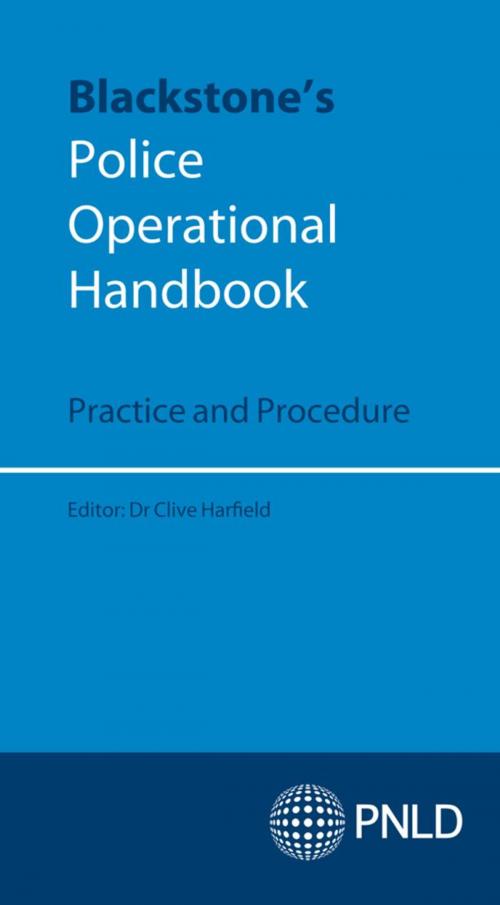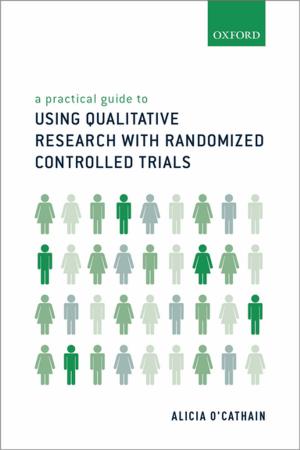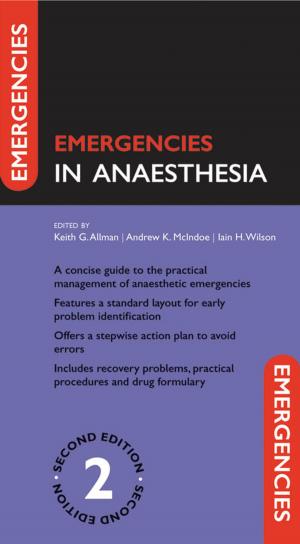Blackstone's Police Operational Handbook: Practice and Procedure
Nonfiction, Reference & Language, Law, Jurisprudence, Criminal law| Author: | ISBN: | 9780191580307 | |
| Publisher: | OUP Oxford | Publication: | August 27, 2009 |
| Imprint: | OUP Oxford | Language: | English |
| Author: | |
| ISBN: | 9780191580307 |
| Publisher: | OUP Oxford |
| Publication: | August 27, 2009 |
| Imprint: | OUP Oxford |
| Language: | English |
This practical handbook follows the successful flexicover format of Blackstone's Police Operational Handbook and is designed to complement that publication by offering guidance on good practice in core policing areas. Aimed at junior patrol officers, student officers and trainee detectives, it draws together practical advice across a wide range of police duties, along with extracts and explanations of official policy and guidance from ACPO, the National Policing Improvement Agency and the National Centre for Policing Excellence. The Handbook provides guidance on a structured approach to police work based on established national principles and practices and is divided into four parts: Evidence Management, which offers advice on the capture and handling of evidence with chapters on crime scene management, disclosure, witness and victim management and court procedure; Knowledge-based Policing, which outlines the National Intelligence Model, the Police Code of Conduct, ACPO values, human rights, planning and risk management and dealing with the media; Neighbourhood Policing, which covers the principles and team structures, partnerships, problem-solving techniques and crime prevention; and Protective Services Policing which looks at the role of the first responder in major incident response, major crime, and civil contingencies. Commentary is accompanied with features such as boxed examples, checklists, diagrams, practical tips and flow-charts, to aid reader's grasp of the issues.
This practical handbook follows the successful flexicover format of Blackstone's Police Operational Handbook and is designed to complement that publication by offering guidance on good practice in core policing areas. Aimed at junior patrol officers, student officers and trainee detectives, it draws together practical advice across a wide range of police duties, along with extracts and explanations of official policy and guidance from ACPO, the National Policing Improvement Agency and the National Centre for Policing Excellence. The Handbook provides guidance on a structured approach to police work based on established national principles and practices and is divided into four parts: Evidence Management, which offers advice on the capture and handling of evidence with chapters on crime scene management, disclosure, witness and victim management and court procedure; Knowledge-based Policing, which outlines the National Intelligence Model, the Police Code of Conduct, ACPO values, human rights, planning and risk management and dealing with the media; Neighbourhood Policing, which covers the principles and team structures, partnerships, problem-solving techniques and crime prevention; and Protective Services Policing which looks at the role of the first responder in major incident response, major crime, and civil contingencies. Commentary is accompanied with features such as boxed examples, checklists, diagrams, practical tips and flow-charts, to aid reader's grasp of the issues.















